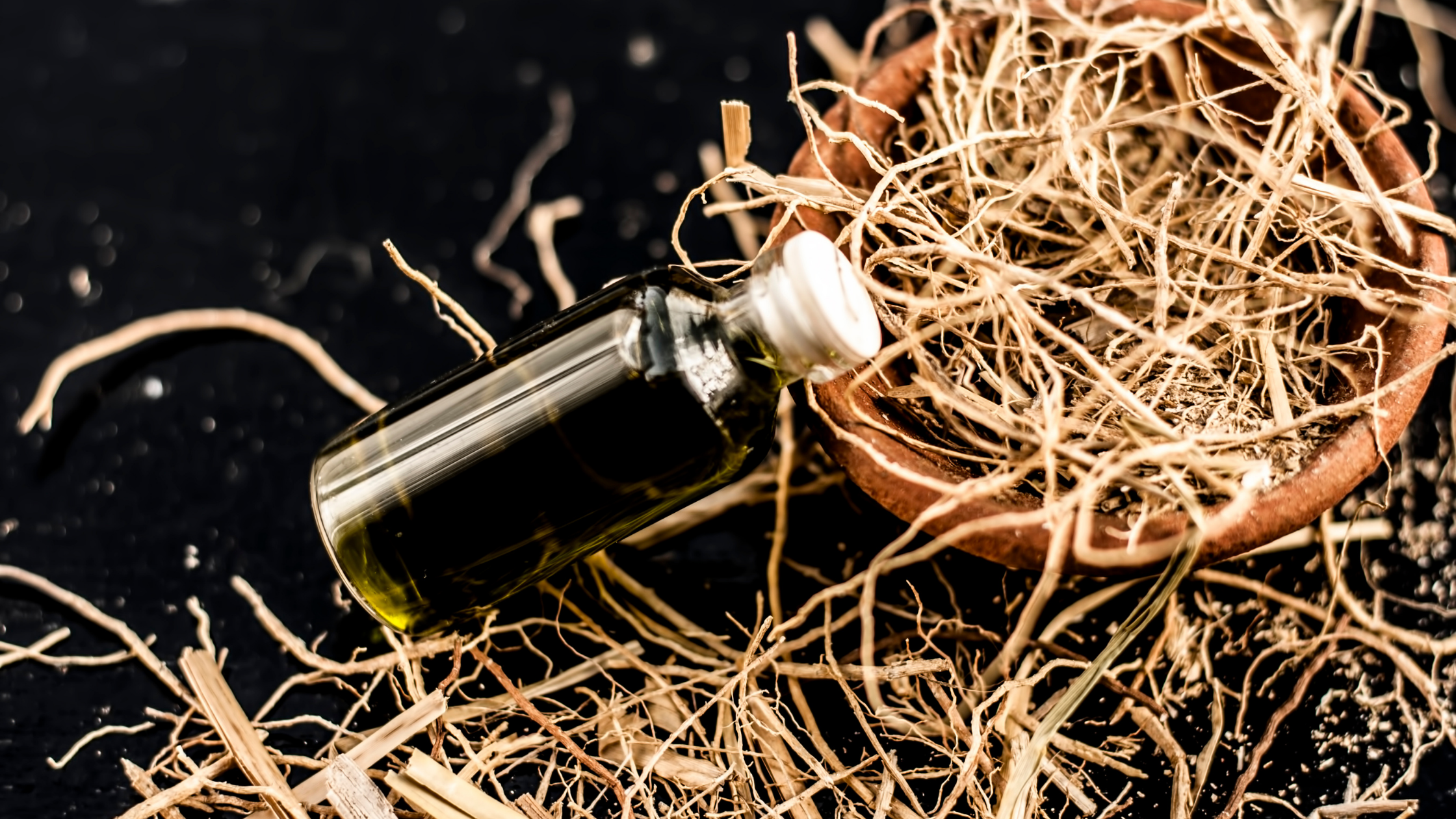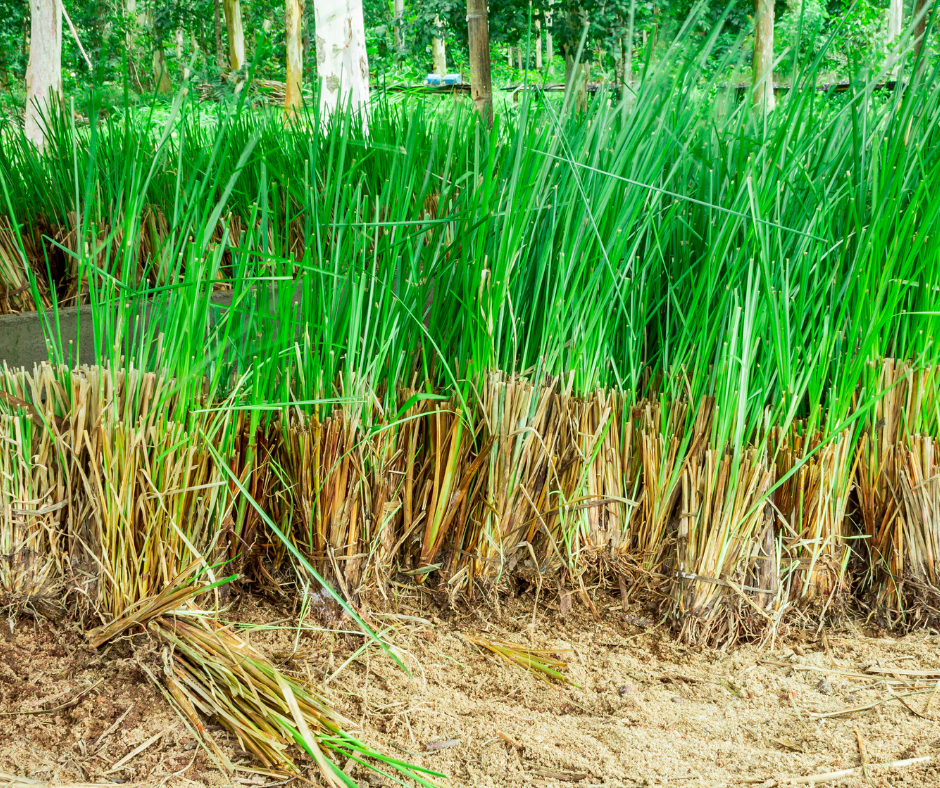
Vetiver grass (Chrysopogon zizanoides) is a clumping perennial grass with a sterile, non-running root structure. Vetiver grass is used for biological remediation, and soil decontamination, sewage treatment, animal cut feed, crafts, and essential oil production, among many other things, in addition to its excellent erosion control and self-terracing qualities. Vetiver grass is an Indian native that produces a huge amount of biomass – up to 45-60 tonnes per acre per year in the tropics. In Central California, vetiver grass clumps may grow up to 2 feet in diameter and 6 feet tall in their first growing season, depending on water supplies. It is drought-tolerant once established, though it will need supplemental watering during its first growth season to establish itself.
Benefits Of Vetiver Grass
Widely Adaptable
Vetiver is native to northern India and southern China, where it thrives in climates with an annual rainfall of more than 300mm, or 600mm in areas with a six-month dry season. It can also withstand submergence for up to a month. Frost limits its development. Vetiver thrives on soils with pH ranging from 4.5 in Ethiopia and China to 10.5 in India, as well as in saline soils with a conductivity of 4.0.
Low Maintenance and Several Uses
A yearly trim is all that is required to maintain a vetiver hedge in excellent condition. Keep the grass from blooming, or the stem will die back, inhibiting tillering and slowing the clump’s development (although the clump develops from the plant’s center, so there is no disintegration). The cut material is ideal as tree thatch or mulch. It can be utilized as an animal feed supplement when combined with a high-protein fodder like Amaranthus. Vetiver also grows back quickly after a fire, despite being fire-resistant when green and can be utilized as a firebreak.
Low Space Requirements
Vetiver has an upright growth habit, though hedges that are 500mm high and wide work best. This means that vetiver hedges can be planted on farms with minimal changes to the current agricultural layout. Because vetiver roots grow vertically for at least three meters, they not only bind the soil, but they also don’t compete for water and nutrients with neighboring crops, as agroforestry alley cropping systems do. Vetiver may be planted around the edge of existing terraces to help prevent them from collapsing. The oil found in vetiver roots seems to keep burrowing rats away.
Ease of Propagation
Because most vetiver kinds are naturally sterile hybrids that do not produce seed or stolons, there is little risk of the grass spreading from where it is planted. Propagation could not be easier. Large clumps are divided into five to six slips, which can be planted bare roots with a little slow-release fertilizer, much like forestry seedlings. Digging up stock plants will be simpler if a nursery bed is built on sandy soil. Layering a blooming stem that will root out from the nodes may be used to cover gaps in an existing hedge. Like forestry seedlings, the grass may be reproduced from nodal cuttings and grown in polythene tubes.

